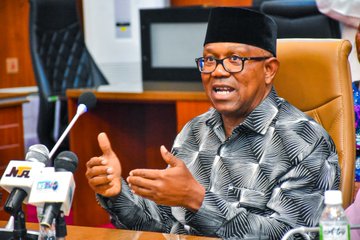
Nigeria’s Mandatory Voting Bill Axed: Tajudeen Bows to Pressure
Speaker of the House of Representatives Abbas Tajudeen has withdrawn his contentious bill proposing six-month jail terms or ₦100,000 fines for Nigerians who skip voting, following fierce backlash from civil society, legal experts, and the public. The move marks the second time Tajudeen has retracted a controversial legislative proposal amid accusations of undermining democratic freedoms.
Why the Bill Was Pulled
In a Monday statement by his media aide Musa Krishi, Tajudeen cited:
- Public Sentiment: “Law-making must respect individual freedoms.”
- Stakeholder Pressure: Nigerian Bar Association (NBA), Yiaga Africa, and others condemned the bill as “unconstitutional” and “draconian.”
- Pivot to Incentives: Tajudeen pledged to explore “positive incentives” instead of coercion to boost voter turnout.
Global Context: The Speaker initially defended the bill by citing Australia and Brazil’s compulsory voting models, which achieve 90%+ participation.
The Bill’s Controversial Clauses
Introduced in February 2025 and co-sponsored by Rep. Daniel Ago (Bassa/Jos North), the bill sought to amend the Electoral Act 2022 by:
- Mandating Voting: All eligible Nigerians required to vote.
- Penalizing Absenteeism: Non-voters risked ₦100,000 fines, 6-month imprisonment, or both.
- Second Reading Progress: Passed initial debate and moved to the House Committee on Electoral Matters before withdrawal.
Opposition Roars: ‘A Threat to Democracy’
- Nigerian Bar Association (NBA):“This bill is an affront to civil liberties. Voting is a right, not a legal obligation.” – President Afam Osigwe.
- Yiaga Africa:“You don’t force civic engagement. This approach violates constitutional rights.” – ED Sam Itodo.
- Public Reaction: #NoToJailForVoting trended on X, with critics calling it “elitist” and “anti-poor.”
Tajudeen’s History of Retreats
This marks the Speaker’s second high-profile withdrawal in a year:
- August 2024: Pulled the “Counter Subversion Bill” criminalizing “disrespect” of officials after public fury.
- Pattern: Critics accuse Tajudeen of testing authoritarian-leaning reforms before backtracking under pressure.
What’s Next? Incentives Over Coercion
Tajudeen’s office outlined post-withdrawal plans:
- National Dialogue: Stakeholder forums to address voter apathy (2023 turnout: 29%).
- Tech-Driven Solutions: Explore e-voting, expanded polling units.
- Civic Education: Grassroots campaigns to rebuild trust in elections.
“Democracy isn’t built on fear but trust,” Krishi added.
Join the Debate!
Should Nigeria adopt mandatory voting to fix low turnout, or is coercion a red line? Share your stance!
[CTA]: “Subscribe for updates on Nigeria’s electoral reforms, legislative battles, and civic rights.”
Why This Matters:
With voter turnout plummeting and public trust in elections eroding, Nigeria’s quest for participatory democracy hangs in the balance. Tajudeen’s retreat signals the power of civic pushback—but leaves unanswered how to reverse apathy.
















Be the first to leave a comment